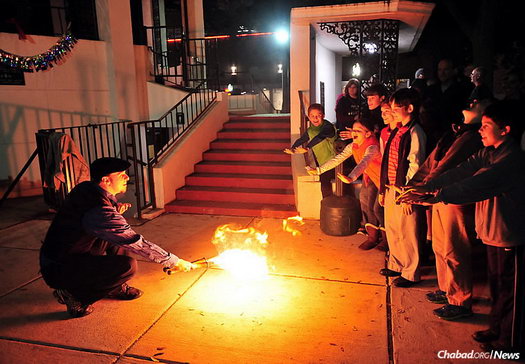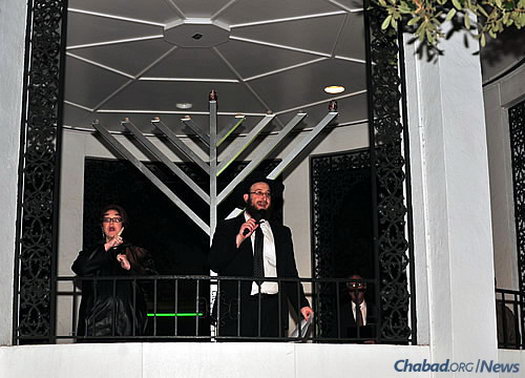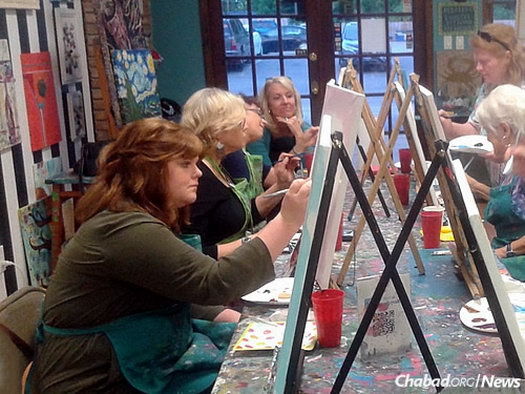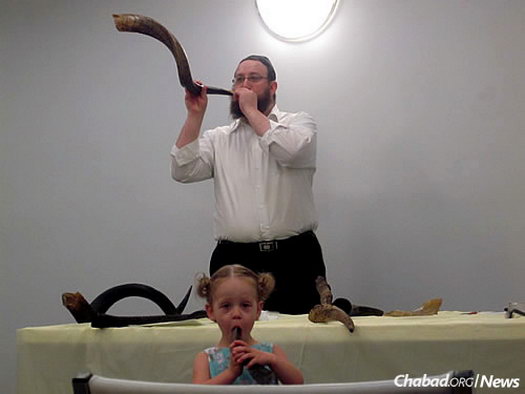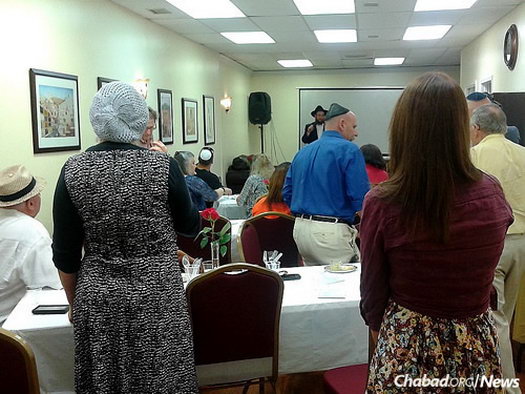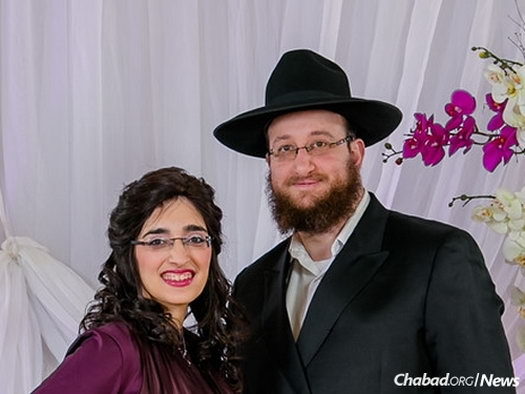
Jewish Life Gets a Jump in Mobile
by Reuvena Leah Grodnitzky – Chabad.org
Though Jews have lived in the port city of Mobile since before the Civil War, it was only two years ago that the third most populous city in Alabama was added to the map of Chabad-Lubavitch outposts worldwide. And just last month, right before the start of the High Holidays, the community celebrated the grand opening of the Olender Chabad House, co-directed by Rabbi Yosef and Bina Goldwasser.
Located in America’s Deep South on the north central Gulf Coast, Mobile boasts a Jewish population of 1,200 Jews, many of whom descended from immigrants who arrived in the port city directly from Europe.
“The Mobile Jewish community as a whole is very proud of their Judaism,” says Bina Goldwasser, 29, who is originally from Florida. “The Deep South, as part of the ‘Bible Belt,’ has a very strong religious association, so it’s amazing how the Jews have been able to maintain their Jewish identity when they can at times be isolated as the only Jew in a classroom or other settings.”
Still, there is much that local Jews don’t have access to because of their distance from larger Jewish communities. That’s why the Goldwassers moved from Brooklyn, N.Y., to Mobile in the summer of 2014 to fill in any needs that the Jewish community may have been experiencing.
Hosting large-scale Jewish-holiday celebrations, teaching educational classes, distributing holiday items such as menorahs and matzah, and shipping in kosher food from New Orleans weekly—a two-hour car ride away—have been the Goldwassers’ first efforts to ensure that every Jew in Mobile has access to Jewish amenities.
“Aside from that, we put much effort into making our programs and classes exciting and applicable to the community—so a holiday is not just about traditions, but incorporates entertainment for the whole family,” says Rabbi Goldwasser, 31, who grew up in Pittsburgh, where his parents have served as Chabad emissaries for nearly 40 years. “And a class is not just stories or laws, but also includes the Torah’s outlook on current hot topics. This keeps Jews excited about Judaism, and shows how it is a real and relevant part of our everyday lives.”
Like other parts of the Southern United States, Jewish families see few Jewish symbols with the approach of winter and Chanukah time. That’s why the Goldwassers’ first major program upon arrival was a large-scale menorah-lighting in Bienville Square, a historic public park in the center of downtown Mobile, where Mayor Sandy Stimpson lit the shamash (“helper candle”) on the giant menorah. Serving his own first term, Stimpson made a little history that night along with the Goldwassers in the first-ever public lighting there.
“Jews here often feel strongly that they are a minority,” explains the rabbi. “Our menorah-lighting was a highlight in that respect because people didn’t have to celebrate Chanukah alone; they could see a 9-foot menorah right in town.”
Destination for Business and Travel
As Mobile becomes more of a draw for businesses—an Airbus factory opened last September, the company’s first manufacturing facility in the United States and now one of the largest employment centers in Alabama—and tourists, Chabad is filling Jewish needs for kosher food, Shabbat accommodations and more. A number of Israelis who work in the area have also now found a taste of home that they crave being so far away.
“The rabbi is the best in the world—such a good person,” declares Desta Eagna, an Israeli employed in Mobile. “He has helped us with all of the holidays, and I enjoy eating a meal with him. He has a beautiful way of bringing people together.”
Mobile is located a little more than an hour from the resort city of Gulf Shores—in southernmost Alabama on the Gulf of Mexico—where the Goldwassers visit to connect with Jewish residents and tourists. It’s been labeled as the “new South Florida” because of its beaches, water sports, leisure activities and natural beauty.
The rabbi also visits local nursing homes to blow the shofar, read Megillah and provide other Jewish services to people living there. He does the same for Jews in area prisons.
“Chabad has been a lovely place to spend Shabbat over the two years that I have been in the region for work,” says Adam Taxin, who travels from his home in Philadelphia often for his work in social media and broadcasting. “It was so special to be a part of the first-ever minyan reading the Ten Commandments for Shavuot and their impressive Chanukah menorah-lighting in the center of Mobile.
“It’s amazing to see how Chabad is sprouting along the Gulf coast,” he adds. “There used to be nothing between New Orleans and Tallahassee, but now that’s not the case. Now I can travel without having to stay alone in my hotel room for the duration of Shabbat.”
‘Help People Learn’
Upon arrival in Mobile, the Goldwassers, who have two young children, had been operating out of their home and renting various locations—art galleries, office spaces, hotel conference rooms—for big events. This summer, however, they signed a lease for office space that has a large room for programs, classes, meals and more.
A grand opening was held on Sept. 21, before the High Holidays. Among a crowd of friends and guests—Bina Goldwasser remarks on the innate Southern Hospitality, how friendly residents there are, Jews and non-Jews alike—the new space was dedicated.
“We want to be there for every Jew, regardless of their standing, knowledge or affiliation, for whatever they may need,” says the rabbi. “We want to help people learn and do more Jewish things than they did before.”

